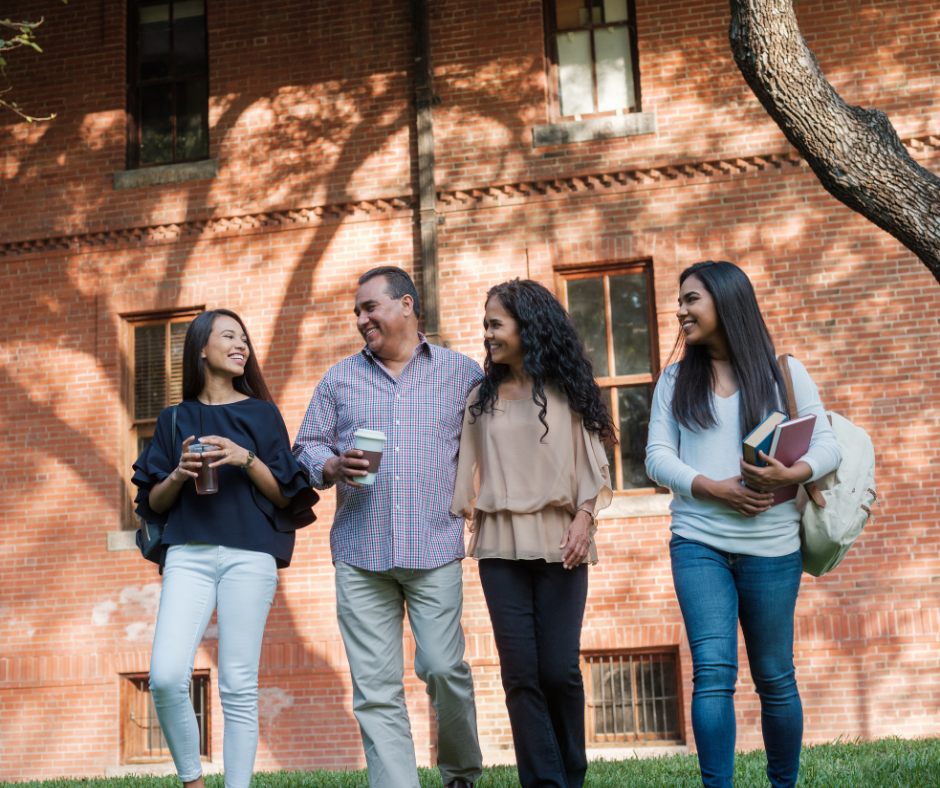Recent Posts

It’s been well over a year since colleges have been open to visitors. As more people are getting vaccinated for Covid-19, college admission offices are again looking forward to welcoming prospective students and their families to their campuses. College officials continue to be concerned about keeping their communities and prospective families safe. So before you take off for your campus visit, consider the suggestions below to ensure you make the most of your college visit. First things first A campus visit is a major component in the college search, allowing prospective students to get first-hand, up-close impressions of a college without relying on other sources such as peers, alumni, or social media. Do not worry if you cannot afford the time or money to visit a campus far from your home. Admissions officers understand that visiting campuses requires a substantial commitment of time and money that many students cannot afford. Check admission websites to figure out if campus visits are considered a form of “demonstrated interest” and may become a factor in the admission process for some students. When to visit The timing of your campus visit will depend on what is best for you and your family. Summer visits can be very effective. Admission officers and students tend to be more relaxed during the summer. You may find it more relaxing, especially if you have many academic and extracurricular obligations during the school year. Consider visiting colleges farther away from home during the summer. Your family can treat the visit as a mini-vacation by spending time in interesting nearby areas as part of the trip. And conversely, you can look and see what schools are near anywhere a vacation is planned. It will be easier to schedule visits closer to home on weekends or school breaks when you and your parents have less free time. Open house or special visit programs for large groups throughout the year can provide an equally excellent overview of academic and extracurricular options. Look on the admissions websites for specific schools you are interested in to find these programs, or Google "college open house programs" or something similar to see schools that have these programs. Before your visit Check the college or university website for times and requirements to attend tours and information sessions. Planning ahead allows the admission office to put its best foot forward to guarantee you have a good visit experience. In light of Covid-19 health precautions, many colleges will request that you pre-register before the visit or limit the number of family members who attend. Create a fairly leisurely itinerary. Avoid marathon road trips where your family is rushing off all over a region to catch an information session or tour at the next school. Although mask requirements may be relaxed in your hometown, colleges may ask you to wear a mask during your visit to campus. Bring a mask along, just in case. Check the website to make sure your academic statistics (scores, grades, GPA, courses) match the college’s admitted student profile. Does the college offer your potential major, extracurricular, and social activities? Is the size of the college a good fit for you? What is the surrounding town like? Are there local restaurants, movies, and shops nearby when you need a break from your studies? How accessible is the campus by car, plane, or train? Create a spreadsheet with statistical information about colleges that interest you. You can also create a column to record your impressions after the visit. If possible, make an appointment to speak with a faculty member, coach, music advisor, or other expert in a specialized area of interest. During your visit Take the lead in presenting yourself and asking questions. Review questions and concerns with your parents before arrival so that you and your concerns - not your parents’ - become the focus of the visit. Plan to spend extra time on campus beyond the official visit options. Usually, the group tour gives students insight into the college community, and the information session gives the official administrative view. Both views are important, but both are official representatives of the college. Drop into the snack bars and coffee shops. Find a popular spot on campus and observe student interactions. Chat casually with current students who are open to sharing their experiences. Do not base your opinion of the college on whether you like or are turned off by the tour guide. If you are far from home and getting back may be difficult, go ahead and schedule an interview at the same time, especially if the admission office highly recommends it. After your visit Compare notes with your parents while impressions are fresh. Discuss the general vibe of the community, the upkeep of facilities, new information you learned, etc. Record your general observations, pros and cons, and impressions on the spreadsheet with statistical information you prepared before the visit. Send a thank you note to your interviewer if you have an interview or an especially helpful tour guide. Continue to research by reviewing official resources published by the college or third-party websites, as well as social media and more subjective resources. If you cannot take advantage of a campus visit… Do not despair! There are plenty of ways for you to become more familiar with a college. Take advantage of online opportunities, like online chats, virtual tours, and information sessions. Arrange an interview with a local representative or alumni referred by the admission office. Attend local information sessions in your area sponsored by the college. Open your emails for admission and campus updates as you continue to scour the website for details about academic and extracurricular information. Reach out to the regional admission officer responsible for your area when you have questions or concerns about the college admission process. Or ask the admission office to match you with a current student who grew up in your area. It may be helpful to ask questions of a peer who knows your hometown and can address similar concerns. Final thoughts A campus visit is just one of many ways to get a sense of whether a college is a right match and fit for you. It is very reliable because you have first-hand experience that you can evaluate for yourself. Access as many options as you can to fairly assess a college community and its academics. Avoid relying heavily on social media and public perception, which may be skewed and not the most reliable source. Remember that public perception of a college or university is usually 20 years behind current facts. Most importantly, keep an open mind and enjoy the ride! ~Sheila Sheila Baisden is a Senior Educational Consultant with Creative College Connections in Leesburg, VA. Sheila has 35 years of experience in college admissions consulting, including holding the Director of Admissions position at Swarthmore College and Associate Director of Admissions at Rice University. In addition, she has served as director of college advising at independent schools in Delaware, Georgia, and Houston.





